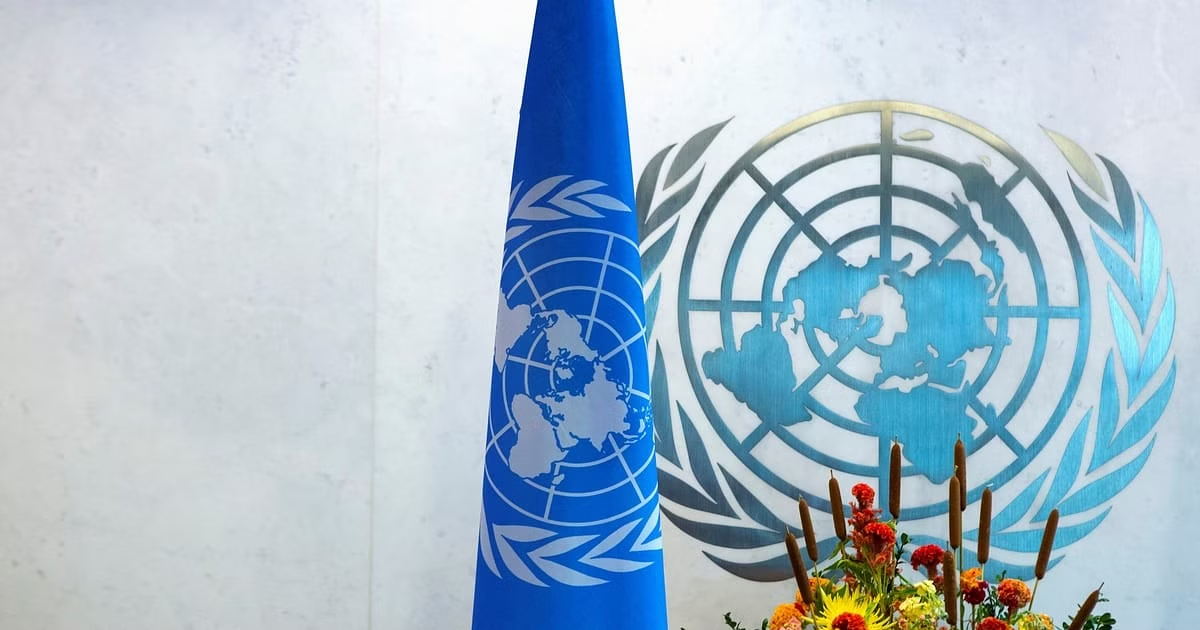A recent United Nations report has revealed that the world is significantly behind on meeting most of the sustainable development targets established in 2015.
These targets, aimed at addressing critical issues such as poverty and hunger, are being hindered by a range of challenges, including funding shortfalls, geopolitical tensions, and the lingering impacts of the COVID-19 pandemic.
The UN’s annual Sustainable Development Report evaluates the progress of its 193 member states in implementing 17 comprehensive “sustainable development goals” (SDGs). These goals encompass a wide array of objectives, from enhancing access to education and healthcare to ensuring clean energy and protecting biodiversity.
However, the report highlights a concerning trend: none of the 17 goals are on track to be achieved by 2030. Most targets exhibit “limited or a reversal of progress,” prompting the report to call for countries to address chronic funding gaps and consider reforms to the UN system itself.

READ ALSO:
Guillaume Lafortune, Vice President at the UN Sustainable Development Solutions Network (SDSN) and the report’s lead author, emphasized that progress was already insufficient even before the pandemic struck.
“What this report is showing is that even before the pandemic hit, progress was already too slow,” Lafortune stated. “Once the pandemic hit, and other crises – including military conflicts – then it is a story of stagnation.”
The report pinpointed several specific areas where progress is particularly lacking. Efforts to combat hunger, develop sustainable cities, and protect biodiversity both on land and in water have shown significant weaknesses.
Additionally, political objectives such as press freedom have experienced a “reversal of progress,” further complicating the global effort to achieve the SDGs.

While some countries have made notable strides, the report indicates a stark disparity in progress. Finland, Sweden, and Denmark are leading the way, ranking at the top of the list of countries in terms of SDG implementation. China has also demonstrated faster-than-average progress. In contrast, the world’s poorest nations are falling further behind, exacerbating global inequalities.
Lafortune highlighted the urgent need for developing countries to gain better access to international finance. He argued that institutions like credit rating agencies should be encouraged to consider a country’s long-term environmental and economic well-being, rather than focusing solely on short-term liquidity.
This shift could help provide the necessary resources for these countries to make meaningful progress toward the SDGs.
READ ALSO:
Top U.S. Expert Predicts the Next Global Pandemic
The report also assessed countries based on their willingness to cooperate globally through UN institutions. Surprisingly, the United States was ranked last in this regard.
Lafortune noted, “A large majority of countries are supportive of collaborating… but there are a number of great powers that do not play by the rules of the game.”

Overall, the UN’s findings paint a sobering picture of the current state of global development efforts. To meet the ambitious goals set for 2030, it is clear that a concerted and collaborative effort is needed, with a focus on overcoming financial barriers, geopolitical challenges, and the ongoing effects of global crises.
Discover more from Cine critique
Subscribe to get the latest posts sent to your email.

